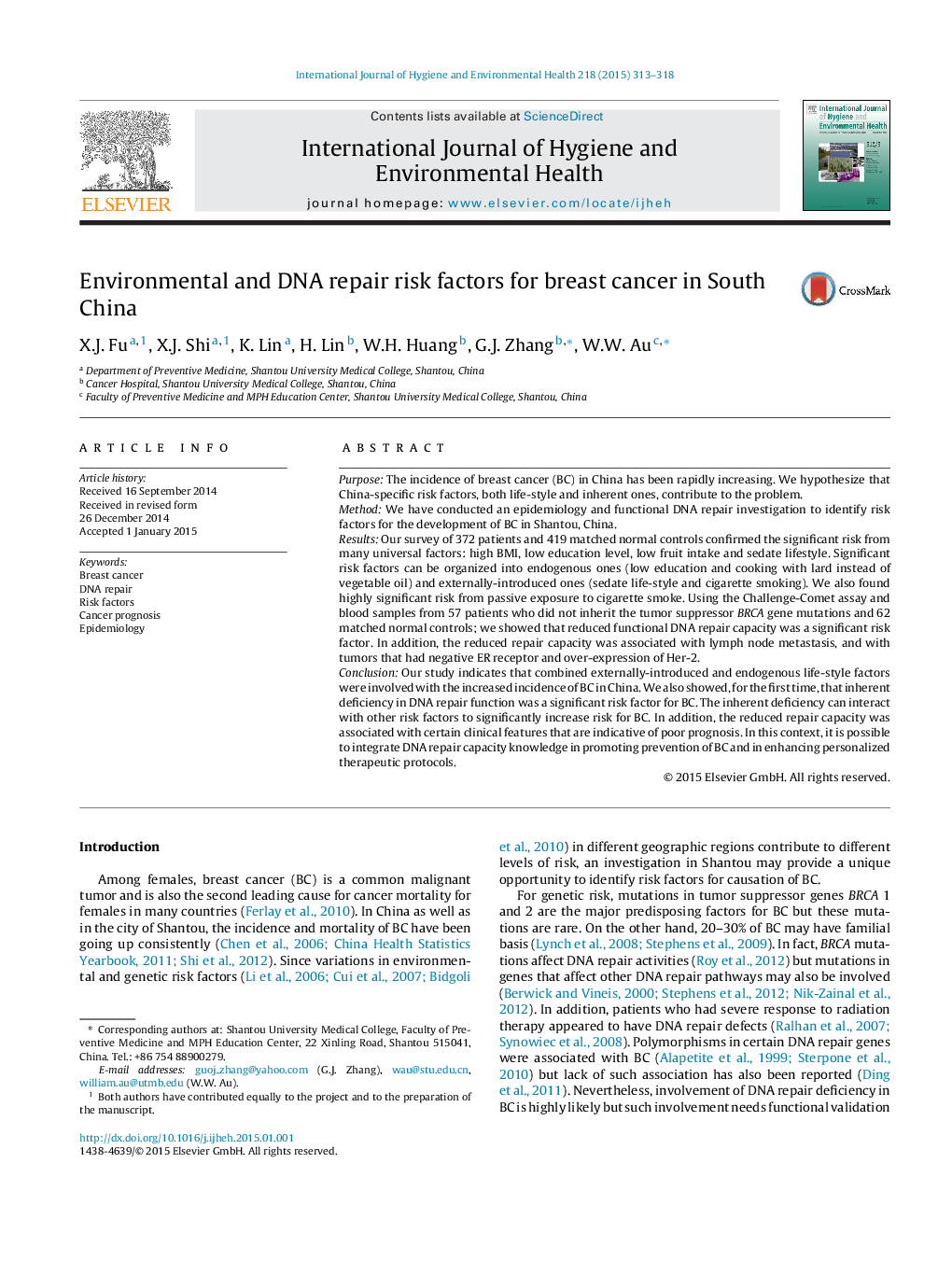| Article ID | Journal | Published Year | Pages | File Type |
|---|---|---|---|---|
| 2588435 | International Journal of Hygiene and Environmental Health | 2015 | 6 Pages |
PurposeThe incidence of breast cancer (BC) in China has been rapidly increasing. We hypothesize that China-specific risk factors, both life-style and inherent ones, contribute to the problem.MethodWe have conducted an epidemiology and functional DNA repair investigation to identify risk factors for the development of BC in Shantou, China.ResultsOur survey of 372 patients and 419 matched normal controls confirmed the significant risk from many universal factors: high BMI, low education level, low fruit intake and sedate lifestyle. Significant risk factors can be organized into endogenous ones (low education and cooking with lard instead of vegetable oil) and externally-introduced ones (sedate life-style and cigarette smoking). We also found highly significant risk from passive exposure to cigarette smoke. Using the Challenge-Comet assay and blood samples from 57 patients who did not inherit the tumor suppressor BRCA gene mutations and 62 matched normal controls; we showed that reduced functional DNA repair capacity was a significant risk factor. In addition, the reduced repair capacity was associated with lymph node metastasis, and with tumors that had negative ER receptor and over-expression of Her-2.ConclusionOur study indicates that combined externally-introduced and endogenous life-style factors were involved with the increased incidence of BC in China. We also showed, for the first time, that inherent deficiency in DNA repair function was a significant risk factor for BC. The inherent deficiency can interact with other risk factors to significantly increase risk for BC. In addition, the reduced repair capacity was associated with certain clinical features that are indicative of poor prognosis. In this context, it is possible to integrate DNA repair capacity knowledge in promoting prevention of BC and in enhancing personalized therapeutic protocols.
